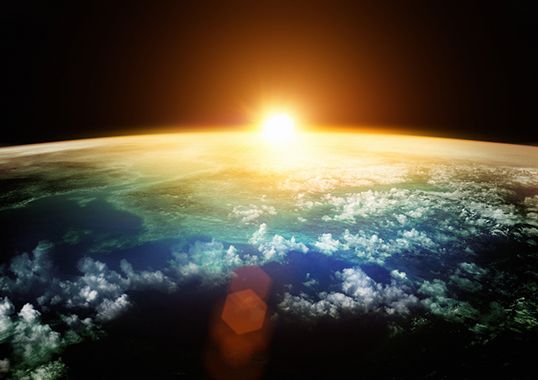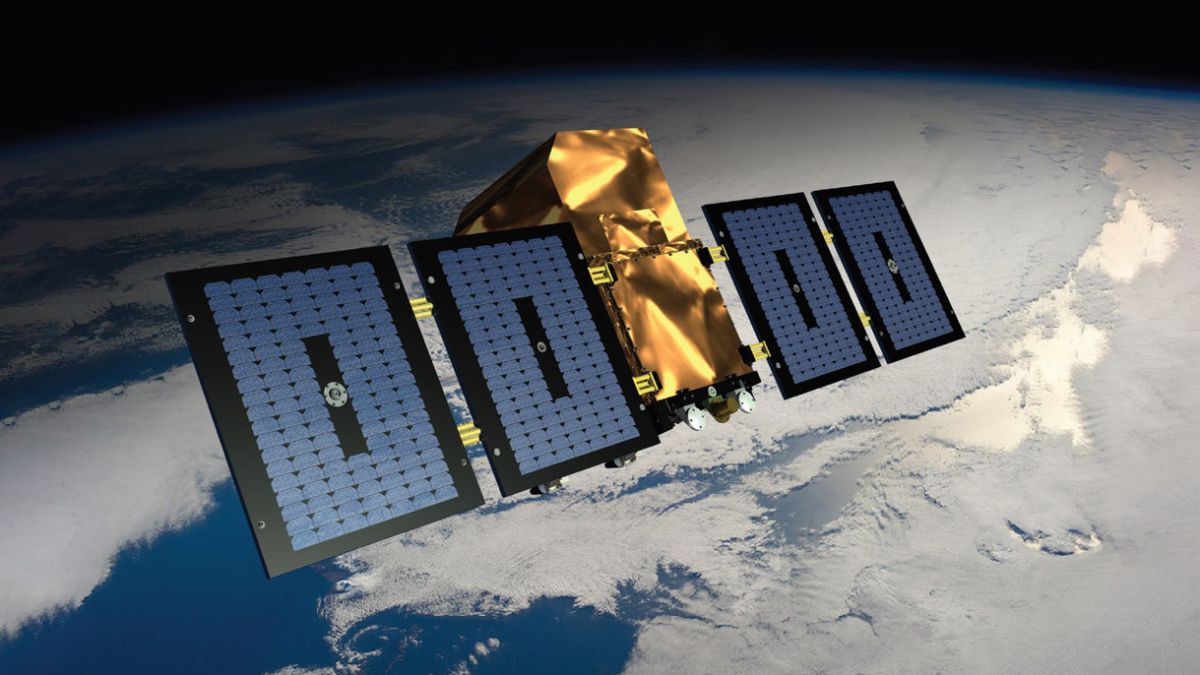Digital Kerbonauts took one giant leap for space gaming 10 years ago. When Kerbal Space Program released on June 24, 2011, the astronaut avatars taught hundreds of thousands of users the physics of spaceflight. While the game was so early-stage that the sun was only a light source and not an actual star, Kerbal let players build space programs from the ground up — then venture to other planets, all following difficult and highly realistic rules. After a decade, the space community remains big fans of the game from Private…
Read MoreMonth: June 2021
Viewing Earth from the Space Station
In this June 2021 image, our Sun’s glint beams off the Indian Ocean as the International Space Station orbited 269 miles above south of western Australia.
Read MoreEarth is trapping twice as much heat as it did in 2005
Planet Earth is now trapping twice as much heat as it did 14 years ago, according to findings of a new study, which raise concerns about the possible acceleration of climate change. For the study, researchers looked at data from the Clouds and the Earth’s Radiant Energy System (CERES) instrument, which flies on several NASA Earth-observation satellites and measures how much energy the planet absorbs in the form of sunlight and how much of that it emits back into space in the form of infrared radiation. The difference between the…
Read MoreNASA to Air Launch, Docking of Roscosmos Cargo Ship to Space Station
Live coverage of Russia’s Progress 78 cargo spacecraft’s launch and docking to the International Space Station will begin at 7 p.m. EDT Tuesday, June 29, on NASA Television, the agency’s website, and the NASA app.
Read MoreHubble Trouble: NASA Works to Fix Space Telescope
NASA Engineers are working to reboot the Hubble Space Telescope, after an unexpected anomaly. The post Hubble Trouble: NASA Works to Fix Space Telescope appeared first on Sky & Telescope.
Read MoreHubble Space Telescope finds galaxy with weirdly little dark matter
Astronomers may not know what dark matter is, but they do know that galaxies are supposed to contain a lot of the shadowy, invisible substance. Dark matter makes up the lion’s share of a galaxy’s mass, and it’s critical to hold a galaxy’s stars, gas and dust together. So, when scientists find evidence twice over that a certain galaxy seems to have a tiny fraction of the dark matter it ought to have, astronomers sit up and pay attention. And that’s where recent observations with the venerable Hubble Space Telescope…
Read MoreTide to develop first laundry detergent for astronauts’ clothing on space station
Future astronauts may not need to worry about moon dust and Mars soil stains, thanks to an effort by Tide to develop a laundry detergent for use in space. The Procter & Gamble (P&G) laundry brand has partnered with NASA to explore how to clean astronauts’ clothes aboard the International Space Station (ISS), as well as on future crewed missions to the moon and Mars. Under the terms of the new Space Act Agreement, NASA may study Tide’s cleaning solutions, while the company works to bring the lessons from its…
Read MoreUK company to start sending secret quantum keys with satellites in 2023
UK-based startup Arqit is on track to start delivering unbreakable quantum encryption keys all over the world using satellites in just two years. Arqit, which recently announced collaborations with U.S. defense giant Northrop Grumman and the U.K. telecommunications behemoth BT, aims to launch two quantum key distribution satellites in 2023 from Spaceport Cornwall in the U.K. aboard Virgin Orbit’s LauncherOne. Quantum Key Distribution (QKD) is a secure communication technique that uses quantum properties of photons, the elementary particles of light, to encrypt secret keys that can be shared by two…
Read MoreGiant Oort Cloud Comet Lights Up in the Outer Solar System
Astronomers have discovered a new comet coming from the Oort Cloud — and it appears to be a big one. The post Giant Oort Cloud Comet Lights Up in the Outer Solar System appeared first on Sky & Telescope.
Read MoreNASA Extends Cyclone Global Navigation Satellite System Mission
NASA has awarded a contract to the University of Michigan for the Cyclone Global Navigation Satellite System (CYGNSS) for mission operations and closeout.
Read More
